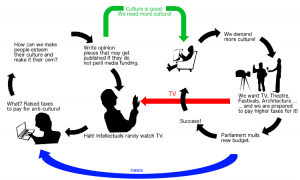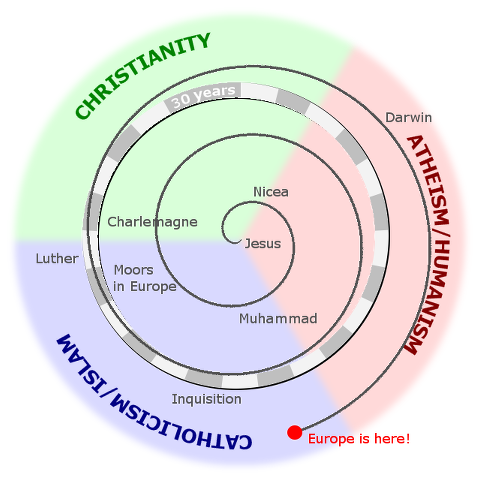With this article, the older article 16 causes of Sweden’s migration crisis will drop out from the front page. A 17th cause would be: an attempt by Atheists, Humanists and Socialists to provoke a war between Christians and Muslims. If successful, they would be able to say “Look how much trouble religion causes! Let’s do away with it.” I am happy to observe that so far, neither Christians or Muslims have swallowed the bait, in Sweden.
An article by a Lawrence W Reed in the Washington Examiner, arguing that Jesus was not a socialist generated some debate. Socialism has many definitions. Reed focuses on the distribution and ownership of property.
I would like to add that another characteristic is Socialists are social. They have what they call “social competence” which makes them able to benefit from the presence of people around them. To the contrary, many Christians become ascetics, because if they are together with other people, it is usually the other people who benefit whereas the Christian him-/herself gets exhausted.
Men, of whom the world was not worthy, became as wanderers in the desert, and in mountains, and in dens, and in caverns of the earth. — Hebrews 11:38, Etheridge.
So then, given the undisputable subjective opinion that Christianity is almost diametrically opposite to Socialism, which some people claim is a “leftist” ideology, does that mean Christianity is right? Sure. Is it rightist? Not so sure.
Truth is holy. If you try to approach it you might become holey, because our adversaries often arrange ideological trenches on either side of truth, shooting at everyone who comes near. One arrangement of trenches is the division of people into leftists and rightists. It is very important for them that you learn and appreciate the fact that this division came about in the French parliament in 1789 because persons with the one extreme view were seated to the left and persons with the other extreme view were seated to the right. Otherwise, you might get weird ideas when you read Ecclesiastes 10:2:
A wise man’s heart is at his right hand; but a fool’s heart at his left.
Actually “hand” is supplied by the translator, whether from Hebrew, Syriac or Greek. If the left-right political dimension existed back then, then perhaps this is about it. However, we also have Jonah 4:11…
and shall not I spare Nineve, the great city, in which dwell more than twelve times 10,000 human beings, who don’t know their right hand or their left hand; and also much cattle?
They don’t know their hands. Um’kay. But if Nineve didn’t have the left-right division in its political establishment, that would actually be a pretty good reason for God to send a prophet and to protect the city for yet a little while. (It is reasonable to supply the word hand in these two passages, however compare the Greek text of Luke 6:6 where a hand is explicitly involved.)
Coincidentally, where I live, the left-right split is most vehementally defended by people who absolutely hate the Christian god. Why? It might be unsettling to a socialist if there are a lot of honest workers moving around in society who think for them selves and draw their own conclusions. The solution then, is to provide these people with a leader and with spiritual guides so that they act in predictable ways. Give them a little victory here and a little victory there, but maintain a society where the selfish liars will always come out on top.
But thou, when thou art doing thy alms, let not thy left hand know what thy right hand doeth, that thine alms may be in secret; and thy Father, who seeth in secret, shall recompense thee in openness. — Matthew 6:3 .. again ‘hand’ is supplied.
In Socialist societies alms are handled by the state and the people cannot afford to give anything beyond what they pay in taxes.


